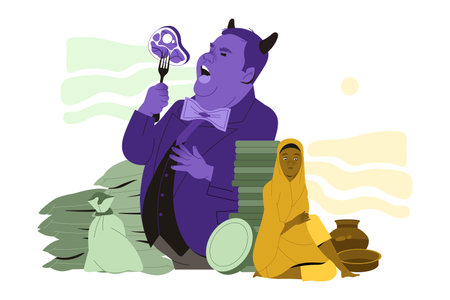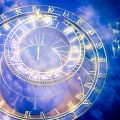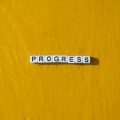A Brief History of British Astrology in the Media
Let us hop into our cosmic TARDIS and spiral back to a simpler time—before smartphones, before Love Island, and definitely before TikTok astrologers told us to ghost our exes because Mercury was “in retrograde.” Once upon a time, astrology in Britain lived an unglamorous life wedged between obituaries and the crossword puzzle, like an eccentric aunt at a family dinner. In those halcyon days, newspapers were king, and broadsheet horoscopes offered daily doses of celestial wisdom—somewhere between “your lucky colour is puce” and “avoid any major decisions involving ferrets.” These astrological snippets became a national ritual, consumed by everyone from your nan to your neighbour’s budgie (who was probably also a Leo).
2. From Mystic Meg to Modern Mavens
If you’ve ever tuned in to British telly and wondered why half the nation suddenly decided not to leave the house because Mercury was in retrograde, you can probably blame our astrological broadcasting icons. Britain’s relationship with astrologers is as enduring as our love affair with tea—except astrology comes with more sequins, bigger hair, and a lot more questionable predictions.
The Original Cosmic Celebs
Let’s start by tipping our collective sparkly hats to Mystic Meg. With her iconic bouffant and crystal ball, Meg became the face of star sign soothsaying on the National Lottery live draws in the ‘90s. Her presence was less about accuracy and more about theatre—think Shakespeare meets space age. But she wasn’t alone; a constellation of TV astrologers followed, each adding their own flavour of cosmic wisdom (and wardrobe choices).
Big Names, Big Hair, Even Bigger Predictions
| Astrologer | Era | Signature Style | Most Outrageous Prediction |
|---|---|---|---|
| Mystic Meg | 1990s-2000s | Bouffant hair, velvet capes | “A Leo will win big tonight!” (statistically probable, but always thrilling) |
| Russell Grant | 1980s-present | Camp exuberance, jazz hands | Predicted a national lottery win for a Sagittarius. (Didn’t specify which one.) |
| Jonathan Cainer | 1990s-2016 | Pensive gaze, poetic forecasts | Told the nation: “Now is a good time for Libras to declutter.” Ikea shares soared. |
The Power of Prime Time Prophecy
The British public didn’t just listen—they acted. If Mystic Meg said a Taurus should avoid travel, train stations would go eerily quiet. Russell Grant’s horoscopes? Perfect pub banter material for those who fancied their fate with a side of sarcasm. These luminaries brought astrology from the back pages of tabloids to the centre stage of British culture—and made it entirely acceptable to blame your Monday mishaps on the moon.

3. Tabloid Tales and Tea Leaves
Ah, the British tabloids: those sacred scrolls of scandal, saucy sidebars, and enough star signs to make a Sagittarius feel special. For decades, astrology columns have nestled comfortably between headlines about royal wardrobe malfunctions and cheeky Page 3 models—because nothing says “credible news” like your future in the stars sandwiched next to yesterday’s football scores. The Sun, the Mirror, and even the Daily Mail have long understood that Brits crave a daily dose of cosmic wisdom alongside their breakfast cuppa. Is it any wonder your aunt still consults Mystic Meg before picking her lottery numbers? These newspapers didn’t just report the news; they manufactured destiny, one cryptic Mercury retrograde at a time. Astrology columns became so deeply ingrained in British culture that people discussed horoscopes with the same seriousness reserved for weather forecasts and Bake Off results. Whether you’re a sceptic or a believer (or just need an excuse for being late), these tabloid predictions provided hope, hilarity, and maybe even a hint of guidance—proving that when it comes to fate, Brits prefer it with a side of gossip and a generous pour of tea.
4. The Social Media Metamorphosis
Once upon a time, British astrologers enjoyed prime real estate in the back pages of newspapers like the ‘Daily Star’—right next to dubious miracle diets and a full-page spread on the world’s ugliest dog. Fast forward to today, and you’ll find these stargazers have swapped ink for Instagram filters, luring Gen Z with pastel-hued birth charts and memes that are suspiciously accurate about your tragic dating history.
So, why have young, tech-savvy Brits ditched the paper for the pixel? Let’s break it down:
| Old-School Astrology | New-Age Astro-Influencers |
|---|---|
| Horoscopes in tabloids (e.g., “Pisces: Avoid cheese today”) | Instagram stories with glittery GIFs and sassy text overlays |
| Dodgy premium-rate phone lines (£1.50/min) | Free TikTok readings (if you can survive the algorithm) |
| Astrologers with names like “Mystic Meg” | Usernames like @MoonBabeVibes666 |
| Letters from worried readers (“Dear Mystic Meg, will I ever find love?”) | Comments flooded with “This is SO me 😂🙌” |
The Meme Ascendancy: Trust Issues and Cosmic Banter
If you think memes about Mercury retrograde breaking your WiFi are just a laugh, think again: For many young Brits, these viral quips feel more trustworthy than a bespectacled mystic in a velvet turban. Maybe it’s because memes don’t take themselves seriously—or maybe it’s because no one wants to admit they paid £20 for someone to tell them Saturn hates their star sign.
Why Social Media Astrology Wins Hearts (and Likes)
- Relatability: Who needs vague advice when a meme nails your existential dread?
- Aesthetic Value: Let’s be honest; nothing says “I’m spiritually enlightened” like an on-brand pastel birth chart in your story highlights.
- Community: Forget lonely nights with Ceefax horoscopes—now you can join 10k strangers arguing over whether Virgos really are control freaks.
- Instant Gratification: Why wait until tomorrow’s paper when you can get roasted by the stars every time you open your feed?
The Bottom Line?
The metamorphosis from tabloid columns to social media scrolls isn’t just about technology—it’s about culture, banter, and the British obsession with not taking things too seriously (except for tea). In a world where everyone’s looking for cosmic reassurance, sometimes the best guidance comes wrapped in a meme—and let’s face it, at least memes don’t charge VAT.
5. Brits, Banter, and Belief: Public Perception
If you’ve ever eavesdropped on a British lunch break, you’ll know that nothing is sacred—not even the stars. The national pastime of light-hearted ribbing extends to astrology with all the subtlety of a “knock knock” joke told over a pint in the pub or, for the more health-conscious, a Pret A Manger sandwich. Yet, despite their reputation for the stiff upper lip, Brits are not immune to planetary panic. One minute it’s “Oh, Mercury’s in retrograde again, blame that for my soggy chips,” and the next it’s fierce debate about whether Venus truly cares about your love life or just wants you to buy more rose quartz.
The British media has long played both sides—mocking horoscopes as whimsical twaddle on one show, while hosting astrologers as special guests on another (because who wouldn’t want to know if their boss is secretly a Scorpio?). This push-pull relationship turns astrology into a cultural ping-pong match: fiercely defended by believers who read their daily star signs religiously, and dismissed with sardonic wit by those who claim they only believe in “what’s written on the back of a Marmite jar.”
Still, there’s something irresistibly British about turning cosmic speculation into social glue. Whether you’re rolling your eyes at Mystic Meg or consulting your moon sign before a big football match (just in case), astrology manages to be both the butt of jokes and the backbone of banter. Perhaps it’s because, deep down, even the most sceptical Brit likes a bit of magic with their morning tea—and if that means blaming Saturn for missing the last train home, so be it.
6. Regulating the Stars: Fact, Farce, and Freedom
Let’s address the cosmic elephant in the newsroom: who, if anyone, is out there regulating these stargazing sages plastered all over British media? If you’re picturing a crack team of OFCOM agents decoding Mercury retrogrades or grilling Mystic Meg on her Mars transits, prepare for disappointment. In the UK, it turns out, the “regulation” of astrologers is about as robust as a teabag after its third dunk.
The Lawless Universe of Predictions
Astrology in Britain enjoys a curious freedom. Unlike journalists (who at least theoretically have to fact-check), astrologers can predict everything from surprise romantic entanglements to lost lottery numbers, all with little more than a raised eyebrow from officialdom. There’s no grand tribunal where star charts are scrutinised for accuracy, and no one’s getting summoned to the Old Bailey for misreading a moon phase. It’s an open field—one part free speech, two parts entertainment licence, and a generous sprinkle of “don’t take it too seriously, darling.”
OFCOM: Bigger Fish, Less Pisces
The Office of Communications (OFCOM), Britain’s broadcast regulator, does technically oversee what wafts through the airwaves. However, unless an astrologer starts doling out medical advice or inciting mass panic with tales of impending Saturnian doom, OFCOM tends to look the other way. Frankly, they’ve got their hands full with politicians’ gaffes and reality TV contestants’ language choices—astrological faux pas are far down the priority list.
Self-Policing in the Psychic Sphere
There are associations like The Astrological Association and The Association of Professional Astrologers International that set “ethical guidelines,” but enforcement is about as strict as asking your cat not to sit on your laptop. Most self-policing consists of a polite suggestion to remind readers that horoscopes are for “entertainment purposes only”—a disclaimer so British in its understatement that it may as well come with a cup of tea.
Freedom to Forecast—With a Wink
This laissez-faire approach means astrologers can flourish on every platform from the BBC to TikTok without much interference—provided they don’t claim their starry wisdom cures bunions or predicts tomorrow’s FTSE crash. In short: in Britain’s media landscape, astrology enjoys a rare combination of freedom and farce. And frankly, given how unpredictable British weather is already, most institutions seem content to let the stars do their thing while they tackle real-world storms instead.
7. From Crystal Balls to Clickbait: The Future of Astrology in British Media
If there’s anything as perennial as the British weather, it’s the nation’s fondness for a cheeky peek at the stars. But as we gaze into our metaphorical crystal balls (or let’s be honest, scroll through our phones on the loo), one has to wonder: are Brits about to swap Mystic Meg for an algorithm named Nigel? Or will cosmic banter forever have a place between our tea and tabloids?
The Digital Star Chart Revolution
Let’s face it, the days of tuning in to hear horoscopes read by a velvet-voiced astrologer on the BBC might be fading faster than your last Mercury retrograde. Now, it’s all about apps, memes, and influencers with enough followers to fill Wembley Stadium twice over. Swipe left for your daily forecast, swipe right for a sassy meme about Capricorns being emotionally unavailable—British astrology is now firmly clickbait territory.
AI Prophets or Timeless Twaddle?
The rise of AI-generated predictions threatens to outshine the classic “stars say you’ll meet a tall, dark stranger” routine. Will Brits really trust their fate to a bot armed with nothing but code and caffeine? Or will the uniquely British desire for a bit of magical nonsense triumph over Silicon Valley logic? Only time (and perhaps Uranus) will tell.
Cosmic Nonsense: A National Pastime?
Despite all this digital wizardry, there’s something stubbornly charming about Britain’s love affair with astrology. Whether it’s office banter about whose moon is rising or blaming tube delays on Saturn, cosmic chit-chat is as much a part of UK life as queuing and complaining about the weather. As long as there are Brits who’d rather blame Venus than themselves for texting their ex at 2am, there’ll be an audience for horoscopes—no matter how they’re delivered.
So, will astrology in Britain become the realm of soulless algorithms and viral memes? Or will we still crave that human touch—a knowing wink from an astrologer who understands both planetary alignments and the subtle art of sarcasm? Whatever the future holds, one thing’s certain: when it comes to cosmic nonsense, British media isn’t done stirring its teacup just yet.

